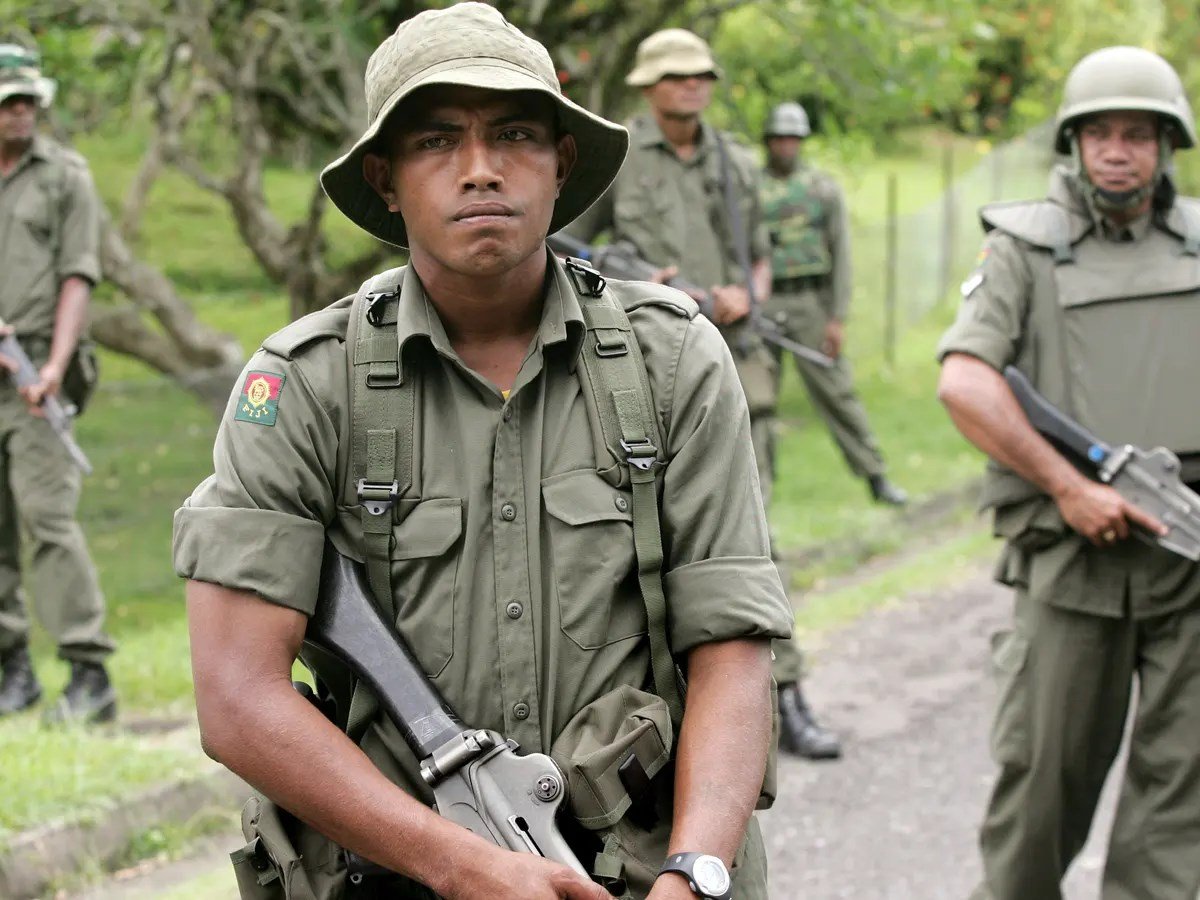Fiji deploys military into streets after elections spark new coup fear
This comes in light of recent elections for a new prime minister last week which left no fruitful results on December 14.
-

Fiji military member (AFP)
Fiji's government was accused on Friday by the opposition of instilling "fear and chaos" to remain in power while deploying troops to the streets of the capital Suva.
This comes in light of recent elections for a new prime minister last week which left no fruitful results on December 14. Bainimarama, a former naval commander, took power in Fiji after a 2006 coup and has been prime minister for 16 years.
Read next: Fiji fears climate change, not conflict
According to AFP, a few military vehicles were on patrol just a day after PM Frank Bainimarama announced their deployment, saying it is a way to uphold "law and order", after claiming incidents of ethnic violence on the streets which left many Fijians fearing another coup.
The opposition, led by rival and former prime minister Sitiveni "Rambo" Rabuka, gained the advantage however of having sufficient seats to form a coalition government - but Bainimarama and his allies caused delays in parliamentary sessions that would nominate Rabuka as the next PM.
The island's constitution gives the military power to take over in political circumstances and has previously been involved in four coups over the past 35 years.
Beijing differences
Rabuka continued to slam the government for claiming heightened levels of racism and racist incidents, adding that government officials were "trying to set the nation alight along racial lines."
He claimed that "senior police officials have confirmed to us that these stone-throwing claims targeting Indo-Fijians are fabrications."
Fiji enjoys a large Indo-Fijian minority which resides in more than its 300 South Pacific islands.
Supposedly as a sign of protest against Bainimarama's leadership, assistant commissioner Abdul Khan of the Fiji Police force, an Indo-Fijian, suddenly quit his job.
However, members of the small Social Democratic Liberal Party have been scrutinized for supporting Rabuka and are being pressured to join the Bainimarama government.
The election is significant beyond Fiji because Bainimarama has maintained close ties with Beijing, while Rabuka has expressed a desire to loosen Fiji's ties with China.

 2 Min Read
2 Min Read








